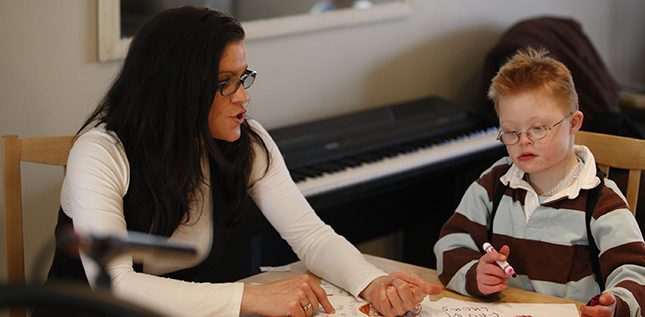Back-to-School Lessons to Help Keep Your Child Infection Free

Once you get your children back to school, you’d also like to keep them there. School allows kids to learn from other kids through projects and play. Yet school is also prime germ-spreading time. Illnesses are inconvenient for all families, but infections can be downright dangerous for medically-complex kids, who can be exposed at school themselves or through school-age siblings.
Here are some tips to help all kids stay infection free:
1. Wash your hands.
It takes just a minute, yet hand washing is the single best way to avoid getting sick. Teach your kids how to properly cleanse their hands and encourage them to do so often at school. First thing to do when they get home? Wash their hands. Second, get a hug from you.
Check out PHS’s Handwashing Guide or call 651-642-1825 and we’ll send you a free guide to put by the sink in your bathroom or kitchen.
2. Cough and sneeze nicely, please.
Teach children to cough or sneeze into a tissue, then immediately throw it away. Or, cough or sneeze into their shirtsleeves—not into their hands, which quickly spread germs. Better yet, after coughs and sneezes, wash those hands again.
3. Sick? Stay home.
Never send a sick child to school. We suggest these guidelines:
- Sniffling: sniffles alone are probably fine (send a box of tissue for your child’s classroom supply), but if sniffles are accompanied by aches and fever, it could be flu, so stay home.
- Chills, Sweats: stay home with a fever (temp 100°F or higher taken orally). See a doctor if there are also white patches on the tonsils; it could be highly contagious strep throat.
- Coughing: if it’s deep, causes shortness of breath and brings up green mucus, stay home and see a doctor.
- Earache: when accompanied by fever or cold symptoms, stay home.
- Pinkeye: bright red eyes with creamy white mucus in the corners that mats the eyelashes. It’s highly contagious so stay home.
- Lice (lice pediculosis): stay home until treated and all adult and immature lice are gone.
- Strep Throat (Streptococcal infection, group A): stay home until 24 hours after adequate antimicrobial treatment started.
- Chicken Pox (Varicella): stay home until all lesions are dry and crusted. If you are exposed, you should stay home from the 10th day after the first exposure through day 21 after the last exposure.
No flu for you
Back-to-school season also begins prime flu season. PHS follows the Centers for Disease Control recommendations and encourages caregivers to contact their physicians for scheduling seasonal and H1N1 vaccines when appropriate. For more information, visit this website or call 800-CDC-INFO (800-323-4636).
PHS is available as a resource to answer any questions you might have about keeping your home infection free. Email us or call us: 651-642-1825.
What helps you stay healthy during the school year? What works for your family and your school?
We’d love to hear from you.
Originally published: August 27, 2010


Just what I was looking for, thanks for all the info. Writing an article for school on this very subject.
Thanks for the comment, I’m glad the information is helpful to you.
Chicken pox is a common childhood illness. Knowing the signs and symptoms of chicken pox is a good thing for a parent to know. I’ve outlined the symptoms of chicken pox on my site, hope it helps out you or your kids.
Vicente, you’re so right, knowing the signs and symptoms of any illness is very important, thanks for adding to the topic.